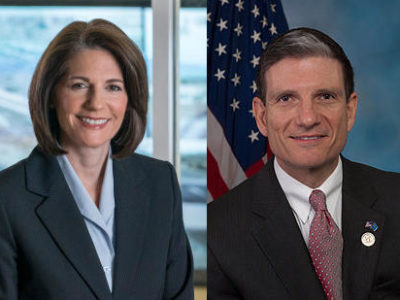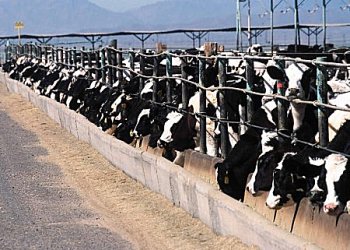Battle for the Senate: Nevada
A tight race with sharply contrasting candidates. Want to gamble on the outcome?
The two major party candidates in the Nevada race agree on the desirability of renewable power, but that's about all they agree on. Joe Heck, a Republican doctor with extensive military experience, favors streamlined permitting for renewable project on federal lands and wants state governments to get a share of the benefits. But he also says he has "supported legislation to protect the coal industry from President Obama's harmful regulation and the EPA's overzealous ...
CONTINUE READINGEnergy Policies Worthy of Debate
Ten questions to ask Clinton and Trump about energy policy.
As we enter the brief debate season prior to the presidential elections, it is easy to anticipate that we won’t see much time set aside for discussing energy policy. That’s not the case for the graduate students in an energy policy class I am currently teaching at the Goldman School of Public Policy. Last week, the students studied the formal statements of the four major presidential candidates and discussed their findings. Perhaps not surprisingly, they discovered a...
CONTINUE READINGReproductive Rights Meet . . . Waste Disposal Law?
Texas aims to limit abortion via environmental regulation
All know that by a 5-3 vote, the U.S. Supreme Court in June struck down as “undue burdens” on the exercise of reproductive rights the State of Texas’s 2013 restrictions on abortion facilities. Those rules required facilities to meet illogical physical premises requirements and to have physicians with local hospital admitting privileges – privileges the Court deemed to play “no relevant credentialing function.” (Whole Woman’s Health v. Hellerstedt, 579 U...
CONTINUE READINGReviewing the REVIEW Act
This bill is in the running for the all-time "lame legislation" prize.
You can tell right away that this bill -- passed by the House only yesterday -- is a really clunker. The title is Require Evaluation Before Implementing Executive Wishlists Act of 2016. Really, that's the best they could come up with? But it only gets worse. The bill provides that no "high-impact rule" can go into effect until the judicial review process is completely over. That's a truly dumb idea, because it totally ignores the benefits of the regulation. ...
CONTINUE READINGWhy Doesn’t the GOP Offer Alternative Solutions to Environmental Problems?
Republicans hate conventional regulations. But they've given up on offering alternatives. Here's why.
There's one thing we all know: the Republican Party hates regulation. Republicans want to roll back some key regulations and make it a lot harder to pass new ones. But there's a curious silence about alternatives to regulation. For decades, conservative Republicans have denounced "command and control" regulations by EPA and other agencies. So why don't they advocate alternate ways to solve environmental problems? There's a simple answer. There are other...
CONTINUE READINGCalifornia Enacts Legislation Targeting Short-Lived Climate Pollutants
The statute codifies the goals set by the Governor and ARB
On Monday, Governor Brown signed SB 1383 into law, establishing statewide targets for reducing what are known as "short-lived climate pollutants," which I have discussed in previous posts. The law requires a 40% reduction in both methane and hydrofluorocarbon gases (HFCs) below 2013 levels, and a 50% reduction in black carbon from 2013 level. Legislators introduced the bill earlier this year after the historic agreement reached under the UNFCCC in Paris. Other than th...
CONTINUE READINGState regulation of environmental harms on federal lands
California Supreme Court case indicates substantial authority for states to act
Sean has already reported on the recent Rinehart decision by the California Supreme Court, in which the Court concluded that a state law imposing a temporary moratorium on the use of suction dredge equipment in California waterways was not preempted by federal mining law. Here, I just want to add to Sean’s excellent summary by identifying some key factors for answering future questions about whether state environmental regulations for activities on federal lands are ...
CONTINUE READINGThe Clean Power Plan: Obama’s Easy Mandate
States Complaining About the CPP Are On Pace to Hit Emissions Targets
Back around the turn of the 20th century, New York's Republican machine was run by Senator Thomas Platt, whose ability to bridge factional gaps gave him the title of "The Easy Boss." Even though President Obama has attempted the same thing, he will have no such luck. Witness, for example, the states -- virtually all with Republican leadership -- which have sued the administration over the EPA's quite mild and moderate Clean Power Plan. It's tyranny, they say. It's...
CONTINUE READINGBattle for the Senate: New Hampshire
Almost uniquely, both candidates support action on climate change.
Kelly Ayotte's rating from the League of Conservation voters is 35%. That's on the high side for a Republican. Her opponent, Maggie Hasan, is a strong advocate of action on climate change. Ayotte is a former prosecutor and long-time state attorney general; she says that as AG she "stood up to polluters to protect New Hampshire's natural beauty." So far as I know, she's also the only Senator to have served on an environmental law journal (at Villanova). She says ...
CONTINUE READINGBattle for the Senate: Pennsylvania
Toomey & McGinty have *totally* opposite views on environment and energy.
The Pennsylvania Senate race pits a former president of the conservative Club for Growth against a former chair of CEQ, the White House Council on Environmental Quality. They may both love the color green, but his shade of green is the color of money and hers is the color of foliage. The Republican incumbent is Pat Toomey, a former investment banker who graduated from Harvard. He served in the House before winning his Senate seat. According to his Senate website...
CONTINUE READING










